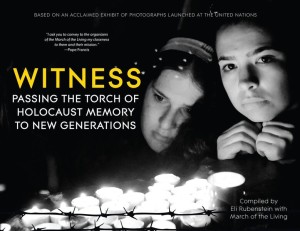
Witness: Passing the Torch of Holocaust Memory to New Generations
Compiled by Eli Rubenstein
Second Story Press, 2015
Eli Rubenstein, the director of the Canadian segment of the March of the Living (MoL) for over two decades, is an educator, and an extraordinary human being. He knows and cherishes the history of his own people, the vitality of their lives as well as the tragedies, including the greatest one, the Holocaust. He celebrates the former, commemorates the latter, never losing sight of the whole.
Through the program of the March of the Living, he teaches the younger generation not through lectures but through sharing experiences, creating a strong bond between generations and a loving attachment to their identity.
But as an educator, Rubenstein also reaches out to other communities, not just to teach them about the Holocaust, but also to learn about them, to respect their experiences, to share and to forge bonds between diverse communities.
When the MoL was first created, its purpose was narrow: visiting only the death sites in Poland, avoiding contacts with both the Polish people and with sites showing where and how Jews lived in Poland for centuries. Eli was the first to change that.
In the mid-1990s, I had the pleasure of meeting him and, together with the first post-Communist consul-general of Poland, Małgorzata Dzieduszycka, we organized the first informal meeting of the young Jewish-Canadian participants and youth from Poland. Starting with tentative questions about one another and followed by singing together, it turned out to be the start of a long relationship. I recall one year when Eli and I worked on a few Polish phrases, complete with phonetic spelling, so the Canadian youth could greet and address a few simple questions to the Poles they met.
As the years went by, the MoL participants began visiting others places in Poland, learning more about Jewish life in Poland. After 50 years of silence imposed by the Communist regime, the Polish students were also rediscovering the Polish Jewish past.
Witness, the book compiled by Eli, shows how much the program has grown. With the addition of the multi-faith March of Remembrance and Hope, co-founded by Eli Rubenstein in 2001, young people from many communities join to learn about the Holocaust and other genocides, and to promote better relations between people of diverse cultures, guided by love, faith, hope and mutual respect.
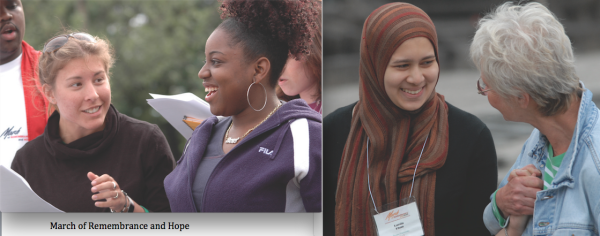
Witness includes a message from Pope Francis, and many stories and poems by survivors and participants. You will not find a single word of hate in it. Photographs include students from Rwanda, Christians, Muslims and others from Canada, a group of young Japanese, and Polish youth. One page highlights written records of resistance left by three young women: Anne Frank; the Polish member of the Polish Underground, Krystyna Wituska, who was beheaded at age 23 on June 26, 1944 in Berlin; and Hannah Senesh, who traveled Palestine to volunteer to train as a paratrooper in Britain. Dropped behind enemy lines, she was captured and executed on November 7, 1944, at age 23.
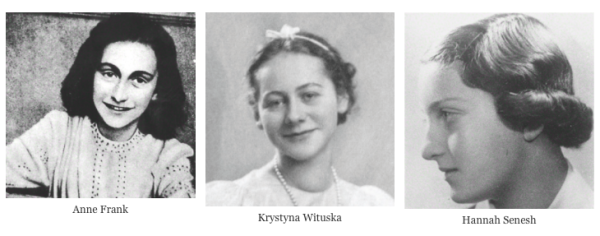
Witness: Passing the Torch of Holocaust Memory to New Generations is a remarkable volume that testifies to the power of remembrance, commemoration, and education.

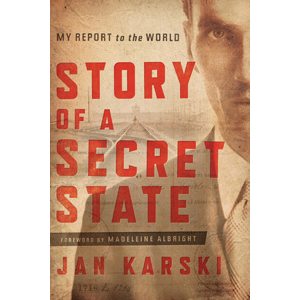

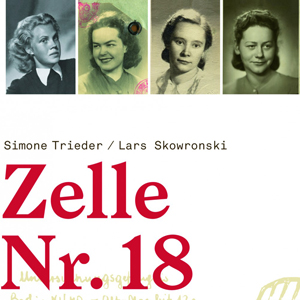
Pingback: Welcome to Winter 2016!
I am a child survivor of the Terezin concentration camp. I was there between 7-10 years of age.
Eastern Connecticut State University has been carrying out a two week global field course (study abroad program) that I have directed to Poland, Austria and Hungary since 2013. Entitled “The Nazi Aftermath in Central Europe: History, the Media and Holocaust,” this global field course sets out to do much of what you are all doing: keeping the memory of the Holocaust alive, learning from the past, and honoring our humanity. I will share this book review and other materials with the dozen students who will travel with me this summer. Prof. Cesar D. Beltran, ECSU, Willimantic, CT
Pingback: Remembrance, Commemoration, Education, and Celebrating Life | International March of the Living
Pingback: The Polish Response to the Holocaust: A Discussion